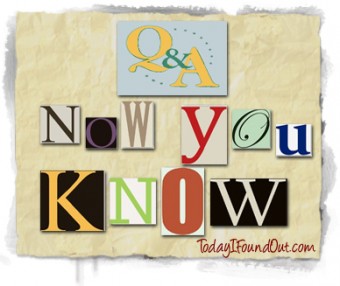What is the Origin of the Spelling Bee Contest?
 Though spelling competitions were very likely around long before “spelling bees”, the first documented case of a spelling bee called such was in 1825. It wasn’t until a century later that the first National Spelling Bee was held in 1925 and was sponsored by the Louisville Courier-Journal. At first, they were only going to include contestants from Kentucky, but ultimately decided to invite other newspapers to sponsor champions of other states. Nine finalists competed in that first spelling bee in Washington D.C. The winning word that year was “gladiolus”, spelled by 11 year old Frank Neuhauser who died on March 22, 2011 at the age of 97.
Though spelling competitions were very likely around long before “spelling bees”, the first documented case of a spelling bee called such was in 1825. It wasn’t until a century later that the first National Spelling Bee was held in 1925 and was sponsored by the Louisville Courier-Journal. At first, they were only going to include contestants from Kentucky, but ultimately decided to invite other newspapers to sponsor champions of other states. Nine finalists competed in that first spelling bee in Washington D.C. The winning word that year was “gladiolus”, spelled by 11 year old Frank Neuhauser who died on March 22, 2011 at the age of 97.
If you’re wondering how “bee” came to be attached to “spelling” to refer to a spelling contest, it’s because “bee” meant at the time something to the effect of “gathering”. It first popped up in this sense in the mid-18th century referring to people getting together to do some work of labor, like building a barn or the like. When the first known spelling bee was held, there were also: apple bees (which also is where the restaurant chain got its name), barn bees, sewing bees, corn husking bees, and, somewhat more minacious, lynching bees, among others. It was customary at these bees for everyone to get together to perform whatever task, then afterwards have a party with refreshments.
Other Spelling Bee Facts:
- The first almost fully deaf person to compete in the National Spelling Bee was Jimmy McCarthy in 1996. He ended up finishing at 48th place out of 247 students, which is even more impressive considering that in order to spell the words, he has to first know what the word is, something that was somewhat problematic in conveying to him, due to his deafness. In order to do this, he had an interpreter who would mouth the word, sign it (but not spell it obviously), and he had a radio device that helped him hear the announcer slightly. However, this still was difficult, given the abstract words they often used for him. For example, one word “dormition” was particularly hard to convey as there is no such word in sign language (as there are only about 40,000 “words” in the particular sign language he knew, compared to nearly half a million words in English). In order to convey “dormition”, meaning “being taken up into heaven”, the interpreter mouthed it and signed “death” and “sleep” at which point McCarthy figured out what word it was they wanted him to spell and he spelled it correctly. He lost when he failed to spell “ululant” (means “howling” or “wailing”). He instead spelled “undulant” meaning “resembling waves”. So it would appear he lost not necessarily because he couldn’t spell the word, but because he was spelling a different word, due to not being able to tell what they wanted him to spell.
- Even though homeschooled students account for just 2.9% of students in the United States, they tend to comprise about 10% of the contestants in the Scripps National Spelling Bee every year. Contrary to popular belief, though, they do not “always win”, as only four home-schooled students have won the bee in its entire history. However, given their elevated representation in the National Bee, it appears they do win the qualifying rounds disproportionally to their numbers.
- The only person not from the United States to win the Scripps National Spelling Bee was Jody-Anne Maxwell in 1998. She is Jamaican.
- The official dictionary of the Scripps National Spelling Bee is Webster’s New International Dictionary which contains about 473,000 words at present for the students to potentially have to spell.
- Oddly enough, since the invention of spell check a few decades ago, attendance at the National Spelling Bee has nearly doubled.
- In the history of the Scripps National Spelling Bee the most common word used in the competition is “connoisseur”.
| Share the Knowledge! |
|




